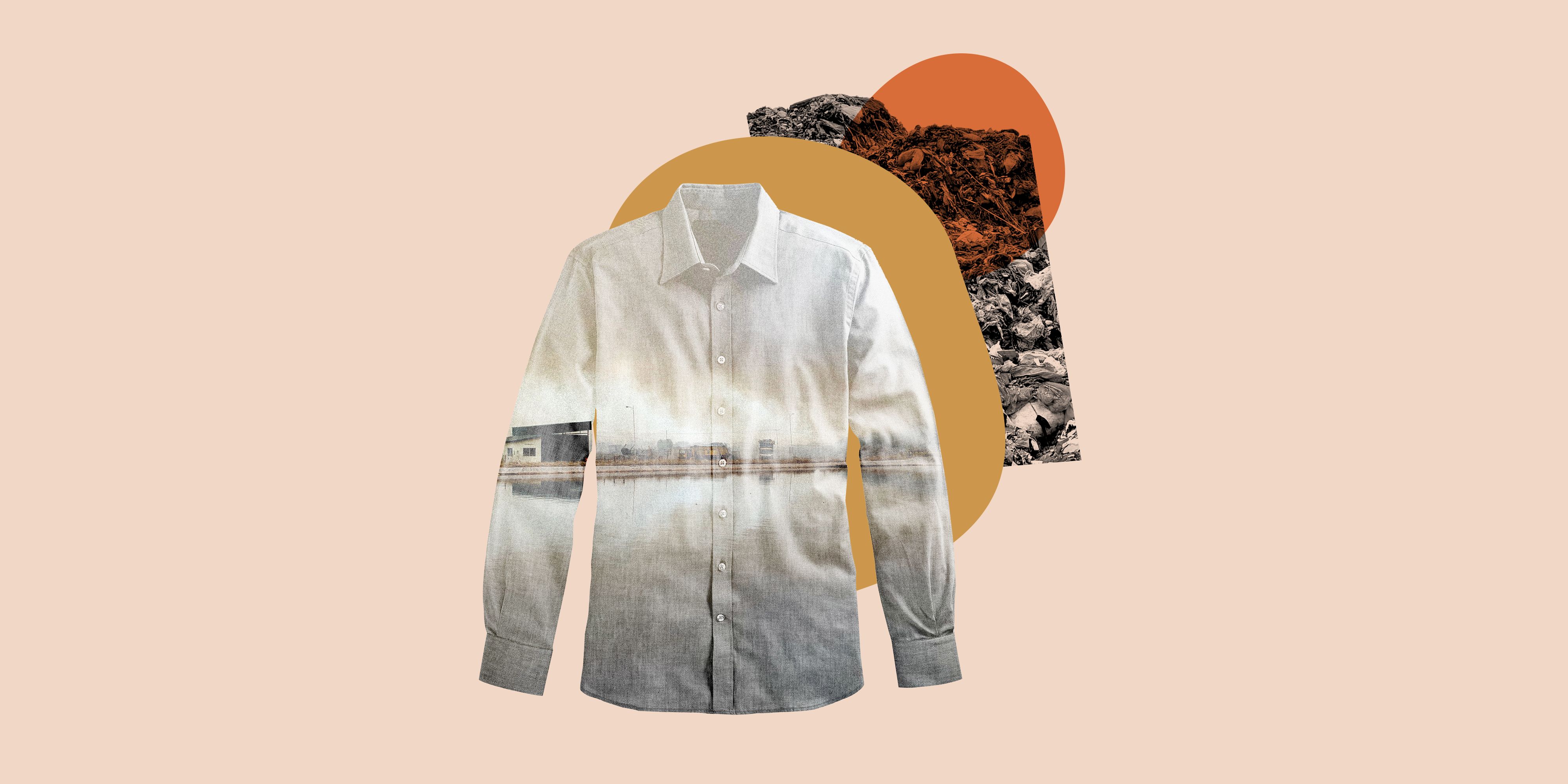Keep Ahead of the Contour by Checking Out Ingenious Style Patterns
In an industry as vibrant as style, remaining ahead entails more than simply complying with current fads-- it demands an exploration of innovation. The convergence of technology and fashion declares a new period of customer involvement.

Welcoming Smart Textiles
In recent years, the apparel industry has actually observed a transformative change with the integration of clever textiles, an innovative development that blends modern technology with fabric. This advancement stands for not just a fusion of appearances and performance but also a substantial jump in the direction of sustainability and personalization in vogue. Smart fabrics, additionally understood as e-textiles, installed innovative electronics such as sensing units and conductive threads within the material, allowing garments to communicate with the setting or the user.
These textiles are made to check physical criteria, such as heart rate or body temperature level, supplying real-time health and wellness analytics. Past wellness applications, wise fabrics are additionally being used for adaptive garments, which can transform shade or pattern in action to environmental stimulations, thus supplying a vibrant style experience.
Additionally, the advancement of energy-harvesting textiles that generate power from motion or sunlight is leading the way for self-sufficient wearable modern technology. This technology is attracting environmentally conscious customers and designers aiming to decrease the eco-friendly footprint of fashion. As r & d in this field development, wise fabrics are anticipated to end up being progressively widespread, improving the landscape of contemporary fashion with their multifunctional abilities.
The Surge of 3D Printing
Changing the production landscape, 3D printing has become a game-changer in the fashion business. This sophisticated modern technology has actually allowed developers to push the borders of imagination, generating complex and personalized garments that were previously unimaginable. By leveraging electronic layout and additive manufacturing, 3D printing promotes the production of complex geometries and patterns, permitting designers to trying out brand-new appearances and structures.
A notable advantage of 3D printing in vogue is its capacity to generate on-demand, reducing waste and minimizing stock demands. This effectiveness not only optimizes manufacturing processes but additionally permits quick prototyping, making it possible for designers to bring their visions to life in a shorter duration. Moreover, 3D printing supports personalization to a level unrivaled by conventional methods, supplying distinct designs and tailored fits customized to specific consumer preferences.
The increase of 3D printing has actually likewise democratized fashion, making it easily accessible to emerging developers that can now produce premium pieces without considerable monetary investment in conventional manufacturing facilities. As technology proceeds to breakthrough, the fashion sector is poised to harness the complete capacity of 3D printing, checking out new materials and techniques that will unquestionably redefine how style is conceived and created.
Sustainable Style Advancements
As the apparel industry faces journalism requirement for ecological duty, sustainable style advancements have emerged at the center of transformative adjustment. The expanding awareness of environmental effect has actually fueled a change in the direction of even more eco-conscious methods and materials. Brands and developers are now prioritizing sustainability, including methods that reduce waste and decrease carbon impacts.
One considerable development is the rise of round style, which emphasizes recycling and upcycling to prolong the lifecycle of garments. This strategy not just reduces waste however also urges consumers to embrace an extra mindful strategy to clothes intake. In addition, using sustainable products, such as organic cotton, hemp, and recycled polyester, has actually gained traction. These products require less water and energy throughout manufacturing, dramatically decreasing environmental effect.
One more advancement exists in the fostering of innovative dyeing strategies that utilize waterless processes or natural dyes, consequently decreasing the substantial amounts of water and chemicals commonly utilized in fabric dyeing. In addition, innovations in biotechnology have led to the creation of lab-grown leather this post and textiles, offering ecologically pleasant and cruelty-free alternatives to traditional products. Via these pioneering efforts, the garment industry is making purposeful strides in the direction of a more lasting future.

Tech-Integrated Clothing
Tech-integrated apparel stands for a cutting-edge combination of fashion and innovation, improving just how individuals engage with their clothes. This innovative domain name is noted by the addition of wise fabrics and ingrained digital elements, enhancing both performance and aesthetic appeal. From fitness trackers embedded in sportswear to heated jackets controlled by means of smartphone applications, tech-integrated apparel offers consumers unprecedented comfort and versatility.
Pioneering brands are driving this pattern, focusing on developing garments that reply to environmental stimuli or customer commands. For example, some garments can change shade or pattern in action to temperature level shifts, while others incorporate biometric sensing units to keep an eye on health and wellness metrics like heart rate or stress and anxiety degrees. The smooth integration of modern technology right into textiles also encompasses environmental sustainability, with efforts to develop self-cleaning materials or garments that readjust to weather, hence minimizing the need for several layers.
In addition, the advent of wearable modern technology is not simply limited to apparel but encompasses devices like watches and eyewear, more expanding the range of tech-integrated style. As the market continues to introduce, the capacity for personalization and personalization in clothing expands, offering customers unique, tech-enhanced fashion experiences that accommodate their private requirements and choices.
Future of Virtual Fashion
In recent times, the future of digital style has actually arised as a transformative pressure within the sector, leveraging innovations in electronic innovation to redefine exactly how style is produced, experienced, and consumed. By incorporating increased fact (AR), online reality (VIRTUAL REALITY), and 3D layout tools, designers can currently craft immersive and interactive experiences that transcend typical fashion borders. Digital style allows for the development of garments that exist exclusively in digital environments, supplying limitless opportunities for innovation without the limitations of physical manufacturing.
This digital shift not only provides opportunities for innovative expression however likewise addresses sustainability worries intrinsic in typical fashion practices. Cape Town Sustainable Fashion. By removing the requirement for physical resources, online style minimizes waste and minimizes carbon footprints. In addition, the surge of virtual style straightens with the increasing customer demand for tailored and distinct experiences, as digital garments can be personalized and customized to private preferences with convenience

Verdict
The style market's Learn More Here future depend on the integration of cutting-edge technologies and sustainable practices - Cape Town Sustainable Fashion. Smart fabrics and tech-integrated link clothing are boosting capability, while 3D printing supplies chances for personalization and waste reduction. Lasting fashion, via round techniques and green materials, demonstrates a commitment to environmental stewardship. Furthermore, virtual style is poised to redefine customer communications. Adapting to these fads is vital for brands looking for to stay appropriate and affordable in this swiftly advancing landscape.
In recent years, the style industry has experienced a transformative change with the combination of smart textiles, an advanced technology that blends technology with material.As the style industry grapples with the pressing demand for ecological duty, sustainable fashion technologies have emerged at the forefront of transformative adjustment.In recent years, the future of online fashion has emerged as a transformative force within the industry, leveraging improvements in digital innovation to redefine exactly how fashion is produced, experienced, and taken in. The surge of online fashion aligns with the boosting customer demand for individualized and one-of-a-kind experiences, as online garments can be customized and tailored to specific preferences with simplicity.
The fashion market's future lies in the assimilation of ingenious technologies and lasting techniques.